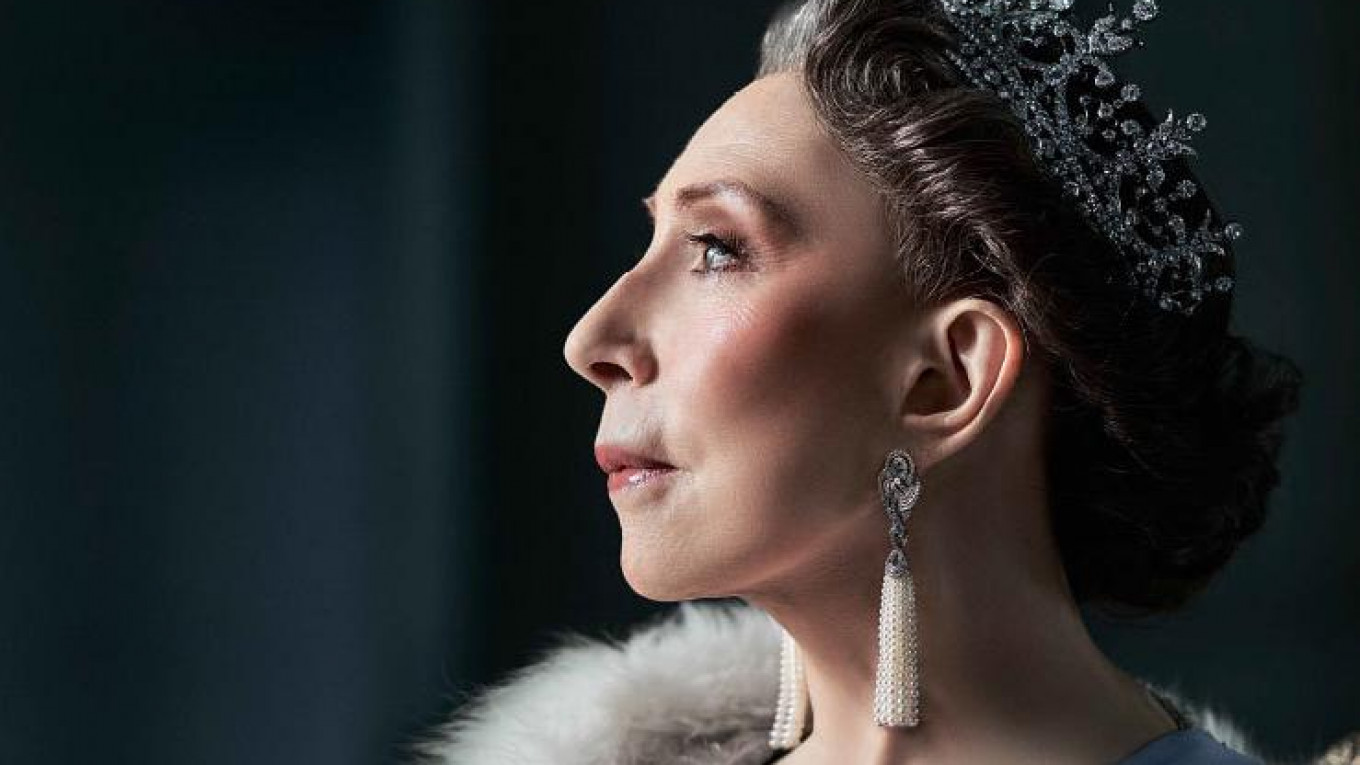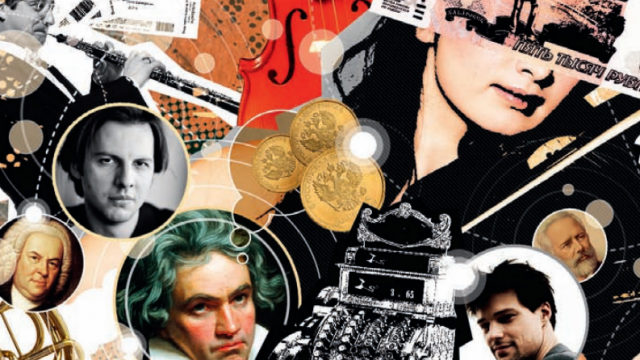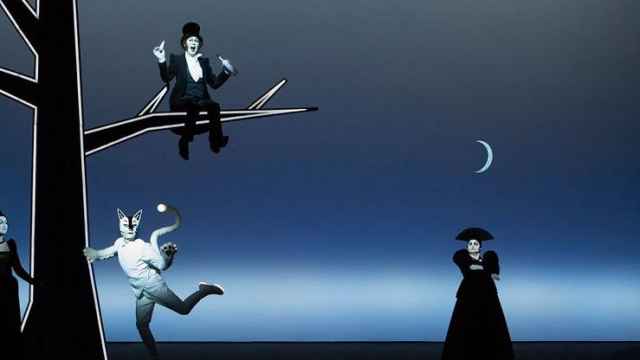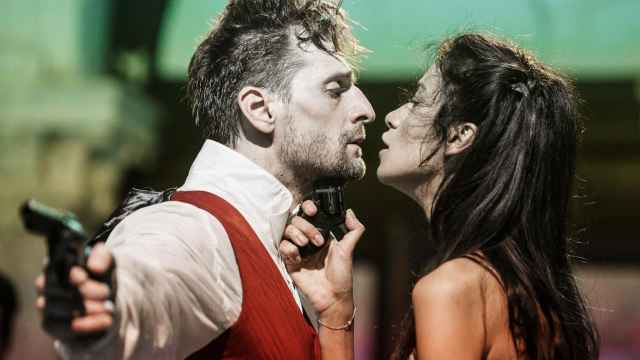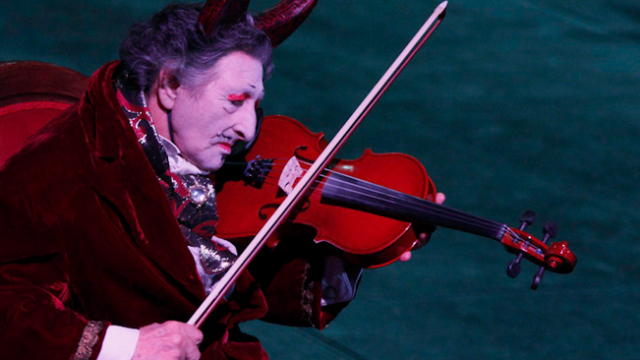As prime minister of the United Kingdom, David Cameron traveled to Buckingham Palace every Tuesday for a private audience with the Queen. A long-standing tradition in the country, these meetings are an opportunity for monarch and prime minister to discuss important matters of state.
What actually went on behind the gilded doors is a matter of speculation. But it’s not hard to imagine a possible interaction: Cameron, all puppy-dog enthusiasm, fidgeting on the edge of his silk-upholstered chair while the Queen coolly chides the boyish prime minister.
Now picture this encounter taking place onstage in a Moscow theater, and that the two are being played by Russian actors. It might seem far-fetched, but this is the reality of “The Audience,” an adaptation of British playwright Peter Morgan’s play of the same name, which returns to Moscow’s Theater of Nations this week after premiering in May.
Diplomatic relations between Russia and the UK remain strained. But the Russian public’s longstanding affection for the British monarchy is undimmed, and the popularity of the play is testament to this.
Originally staged in London’s West End in 2013, with Helen Mirren in the lead role, “The Audience” is based on the weekly encounters between Queen Elizabeth II and “her prime ministers,” going all the way back to Winston Churchill and the early 1950s.
Morgan took an active role in choosing the main character. The casting for Elizabeth II was sealed when the playwright saw actress Inna Churikova in the role of Queen Eleanor in a Russian production of "The Lioness of Aquitaine.”
Already in her 70s, Churikova is one of the most revered artists of her generation. She is known for roles in movies as diverse as the Soviet children's hit "Morozko" and the perestroika cult film "Courier." In “The Audience,” however, she brings a suitably witty archness to Elizabeth II, playing the role with poise and grace.
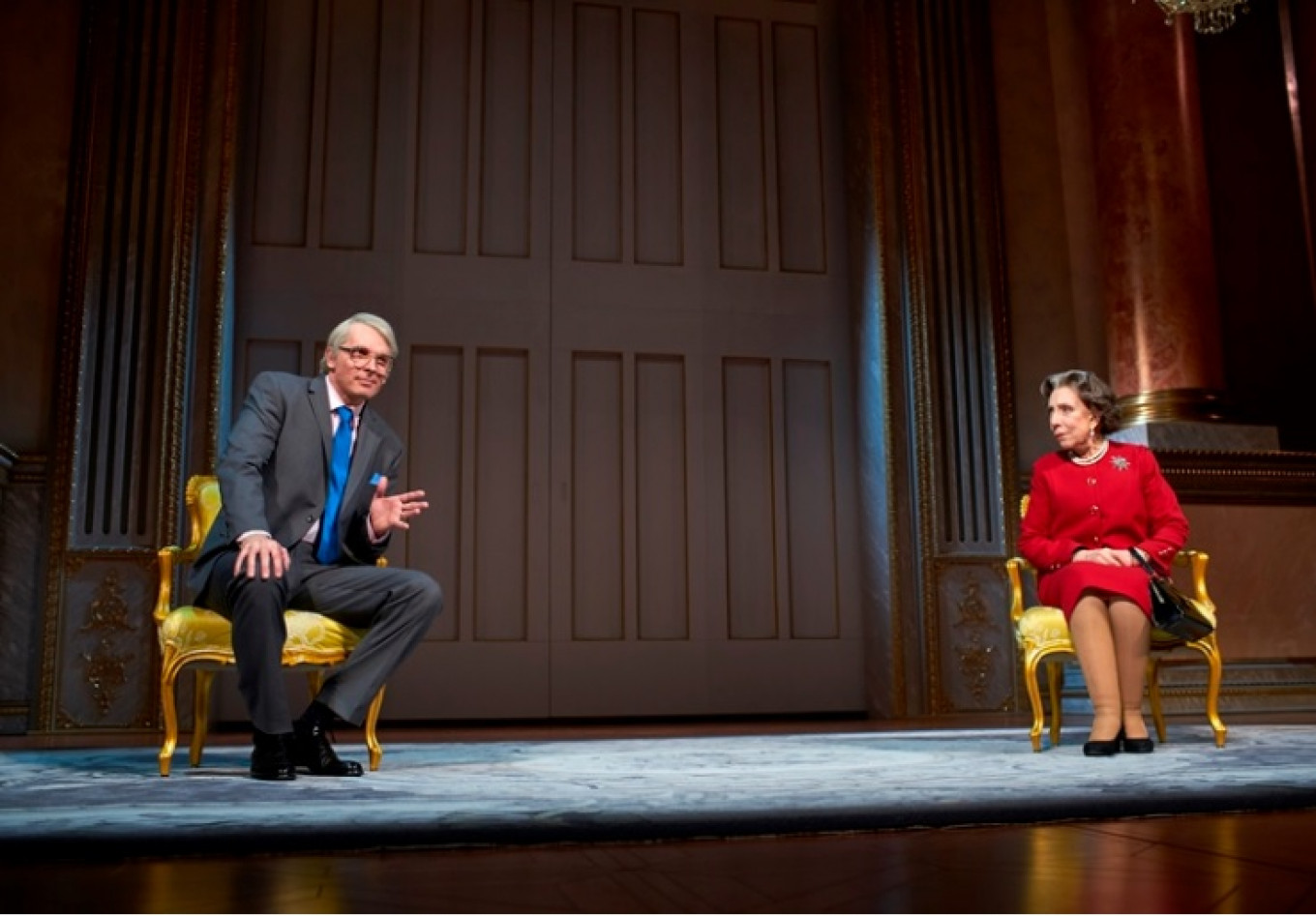
Gleb Panfilov, director of the Russian version of “The Audience,” is perhaps best known for his work as a film director during Soviet times (he later switched to theater). Panfilov was faced with an obvious dilemma when approaching the play. Would local audiences really find discussion of the minutiae of UK politics sufficiently curious to engage their interest over two hours?
This is where he made a canny move. Realizing that he needed to make his version more accessible to local audiences, he asked Morgan to rewrite sections of the script and add more focus on the UK's relations with the USSR and Russia. Morgan worked with Panfilov and a translation consultant to pinpoint the exact moments when Elizabeth II could actually talk to some of her prime ministers about Russia.
In the original version, there was only a single mention of Russia. This is when Elizabeth II tells Harold Wilson that when the Russian tsar visited the royal Balmoral Castle retreat, he is reported to have said it was "colder than Siberia."
In the Russian version of "The Audience," however, we get Margaret Thatcher sparring with the Queen over whether Gorbachev might be manipulated in the UK’s interests. Later, Cameron opens his audience with an enthusiastic report on Russia’s interference in Ukraine: “We know exactly how many Russian troops there are in eastern Ukraine, and where they are… Well, Putin says there aren’t any but we know there are!”
The Queen’s musings on Russia-related matters generally have a sensible detachment, but they ring a false note at times. For example, she responds to Cameron’s Donbass claim by questioning his confidence in the information – a position that appears more in tune with the Kremlin rather than Buckingham Palace.
Oleg Maslennikov-Voitov’s David Cameron is strikingly well-observed — an excitable, gung-ho figure who strides onstage with arms swinging. Here the ex-premier comes across as a man utterly lacking in gravitas, brutally exposed by the Queen’s cool rationality.
Sergei Piotrovsky, meanwhile, brings a surprising realism to John Major, the prime minister of the UK in the early 1990s. Piotrovsky succeeds where his British counterpart Paul Ritter partially failed in his portrayal of Major, bringing a subtlety to the “grey man” that is lacking in the British version.
And then there is the ingenious set. Its opulent interior and lighting beautifully recreates the golden rays of late afternoon sun slanting through the halls of Buckingham Palace.
Those who approach “The Audience” with unrealistic expectations might be disappointed: The subject matter may be British, but many of the wry, culturally-specific jokes don’t really work in Russian, while others fall on deaf ears.
Yet once you have overcome the initial strangeness of seeing such peculiarly British scenes and characters being played out in a different language, the cultural translation obstacles dissipate and it is easy to enjoy the action. All that’s required is a suspension of disbelief.
A Message from The Moscow Times:
Dear readers,
We are facing unprecedented challenges. Russia's Prosecutor General's Office has designated The Moscow Times as an "undesirable" organization, criminalizing our work and putting our staff at risk of prosecution. This follows our earlier unjust labeling as a "foreign agent."
These actions are direct attempts to silence independent journalism in Russia. The authorities claim our work "discredits the decisions of the Russian leadership." We see things differently: we strive to provide accurate, unbiased reporting on Russia.
We, the journalists of The Moscow Times, refuse to be silenced. But to continue our work, we need your help.
Your support, no matter how small, makes a world of difference. If you can, please support us monthly starting from just $2. It's quick to set up, and every contribution makes a significant impact.
By supporting The Moscow Times, you're defending open, independent journalism in the face of repression. Thank you for standing with us.
Remind me later.


